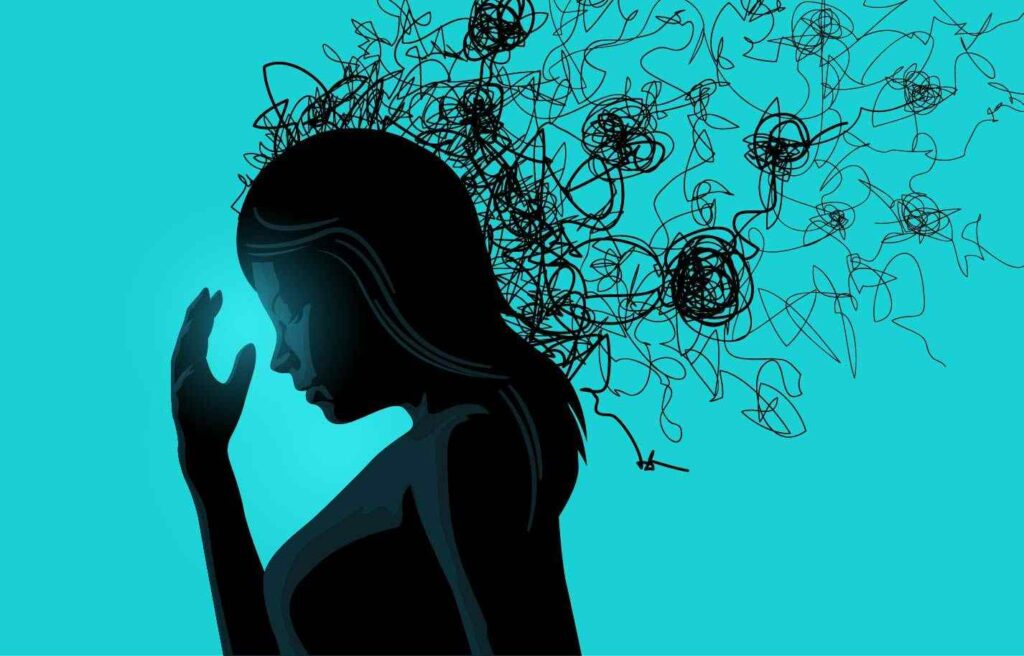Depression is a serious mental illness that can be debilitating for those who suffer from it. Clinical depression is a type of depression that requires treatment from a professional. In this blog post, we will discuss the symptoms, causes, and treatment options for clinical depression. We hope that this information will help you better understand this condition. And seek appropriate treatment if you or someone you know suffers from it.
Contents
What Is Clinical Depression?
 Clinical depression is defined as a low mood that lasts for at least two weeks. This can include feeling sad, hopeless, or disinterested in life in general. For some people, this low mood is a sign of an underlying mental health disorder, such as bipolar disorder. On the other hand, some people may experience clinical depression after a major life event, such as the death of a loved one.
Clinical depression is defined as a low mood that lasts for at least two weeks. This can include feeling sad, hopeless, or disinterested in life in general. For some people, this low mood is a sign of an underlying mental health disorder, such as bipolar disorder. On the other hand, some people may experience clinical depression after a major life event, such as the death of a loved one.
Depression is usually diagnosed based on the presence of certain symptoms. Moreover, in DSM-5, the Diagnostic and Statistical Manual of Mental Disorders, Fifth Edition, clinical depression is also known as major depressive disorder.
What Are The Symptoms Of Clinical Depression?
There are a variety of symptoms associated with clinical depression. It is important to remember that not everyone experiences the same symptoms and that the severity of symptoms can vary from person to person. Some common symptoms include:
Persistent feelings of sadness and emptiness
This is perhaps the most common symptom associated with clinical depression. If you are feeling persistently sad or empty, it may be a sign that you are suffering from this condition. Moreover, these feelings may be accompanied by a loss of interest in activities that you used to enjoy.
Changes in sleep patterns
If you are suffering from clinical depression, you may find that your sleep patterns change. This can manifest itself in a number of ways, including:
- insomnia,
- sleeping too much, or
- having difficulty falling asleep.
These things can make it difficult for you to function during the day.
Changes in appetite
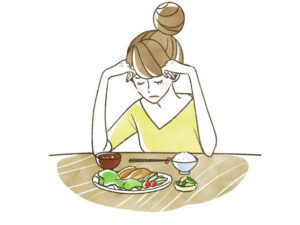 Another common symptom of clinical depression is a change in appetite. This can lead to:
Another common symptom of clinical depression is a change in appetite. This can lead to:
- weight loss,
- weight gain, or
- a change in eating habits.
For example, you may find that you have lost your appetite altogether or that you are eating more than usual.
Fatigue
Feeling tired all the time is another common symptom of clinical depression. This fatigue can be physical, mental, or both. It may make it difficult for you to concentrate or carry out your normal activities. In fact, fatigue is one of the most common reasons people with clinical depression seek treatment.
Loss of interest in activities
When you are clinically depressed, you may lose interest in activities that you used to enjoy. These activities can be anything from your hobbies to your job. This loss of interest can make it difficult to find joy in anything you do.
Feelings of worthlessness or guilt
People with clinical depression often feel worthless or guilty. They may believe that they are a burden to others or that they do not deserve to be happy. These feelings can be overwhelming and can lead to further isolation. This happens even without any support from family or friends.
If you are experiencing any of these symptoms, it is important to seek help from a mental health professional. Clinical depression is a serious condition that can have a negative impact on every aspect of your life. With proper treatment, however, you can live a full and happy life.
What Causes Clinical Depression?
 Although the causes of clinical depression are not fully understood, it is thought to be a combination of genetic, biological, environmental, and psychological factors. Clinical depression is more than just feeling sad or going through a tough time. It’s a serious mental health condition that requires treatment by a qualified professional.
Although the causes of clinical depression are not fully understood, it is thought to be a combination of genetic, biological, environmental, and psychological factors. Clinical depression is more than just feeling sad or going through a tough time. It’s a serious mental health condition that requires treatment by a qualified professional.
Some researchers are particularly interested in the role of neurotransmitters, which are chemicals that transmit signals between brain cells. Studies suggest that an imbalance in neurotransmitters may be a factor in the development of clinical depression.
Other possible causes include:
- Hormonal changes
- Certain medical conditions
- Exposure to environmental toxins
- Sleep disorders
- Certain medications
- Financial troubles
- Relationship problems
- Childhood trauma or abuse
- Loss of a loved one
Clinical depression is a complex condition, and it is often difficult to pinpoint the exact cause. If you think you may be suffering from clinical depression, it is important to seek professional help. A qualified mental health professional can assess your symptoms and develop a treatment.
How To Diagnose Clinical Depression?
The diagnosis of mental health conditions like clinical depression is not always straightforward. A mental health professional will ask you some questions, such as:
- Do you have any physical symptoms?
- What is your sleep like?
- Do you have any problems with concentration or memory?
- What is your energy level like?
- How long have you been feeling this way?
- What is your appetite like?
- What are your moods like?
These questions are meant to help the professional get a better understanding of your symptoms and how they are impacting your life. Once they have a good idea of what is going on, they will likely give you a depression screening test.
There are several different types of screening tests for depression, but one of the most commonly used is the Beck Depression Inventory (BDI). The BDI is a 21-question test that asks you to rate how you have been feeling over the past week.
The questions on the BDI range from “I do not feel sad” to “I am so sad or unhappy that I can’t stand it.” The test is meant to be self-administered, but it can also be given by a mental health professional. A score of 0-13 is considered “normal,” 14-19 is considered “mildly depressed,” 20-28 is considered “moderately depressed,” and 29-63 is considered “severely depressed.”
So, the diagnosis of clinical depression is made based on your symptoms and how they are impacting your life. If you are having trouble functioning in your everyday life, it is important to talk to a mental health professional.
What Are The Treatment Options?
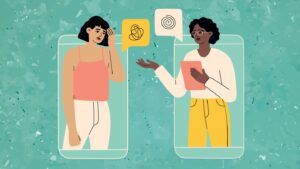 Treatment for clinical depression is typically a combination of medication and therapy. It is usually considered a lifelong treatment, as there is no known cure. However, these can help in managing the symptoms. Also, a professional treatment option is necessary when the severity of the depression is such that it impacts daily functioning.
Treatment for clinical depression is typically a combination of medication and therapy. It is usually considered a lifelong treatment, as there is no known cure. However, these can help in managing the symptoms. Also, a professional treatment option is necessary when the severity of the depression is such that it impacts daily functioning.
So, here are some professional treatment options, these include:
Psychotherapy
It is also known as talk therapy, this is a process that helps in exploring thoughts, feelings, and behaviors. That may be contributing to the depression. It also teaches different ways of coping with the symptoms. More often, cognitive-behavioral therapy is used to treat clinical depression.
- Cognitive-behavioral therapy: This is a type of psychotherapy that helps in identifying negative thoughts and behaviors. That contributes to the depression and then works on changing them. CBT works on the principle that our thoughts, feelings, and behaviors are all interconnected.
- Interpersonal therapy: This is a type of psychotherapy that focuses on relationships. It helps in exploring how they may be impacting the depression. IPT also works on teaching different ways of communicating and relating to others. In fact, it is believed that interpersonal therapy is as effective as CBT in treating clinical depression.
For best therapy, you can contact Mantra Care, it is a platform that will connect you with a licensed mental health professional. It provides access to quality mental health care. When it comes to therapy, they have a wide network of providers who offer different types of therapies. So, book your free consultation today to learn more!
Medication
There are different types of medications that can be used to treat clinical depression. The most common type of medication is antidepressants. These work by impacting the chemicals in the brain that are believed to be responsible for causing depression. Moreover, medication gives you relief from the symptoms of clinical depression. Some common examples of medications for clinical depression are:
- Selective serotonin reuptake inhibitors (SSRIs)
- Serotonin and norepinephrine reuptake inhibitors (SNRIs)
- Tricyclic antidepressants (TCAs)
- Monoamine oxidase inhibitors (MAOIs)
Other medications that can be used to treat clinical depression include:
- Mood stabilizers
- Anti-anxiety medications
- Anti-psychotic medications
So, these medications can be used to treat clinical depression. But, it is important to remember that they come with side effects. That’s why it is necessary to work with a mental health professional. To get the best possible treatment for clinical depression.
Support Groups
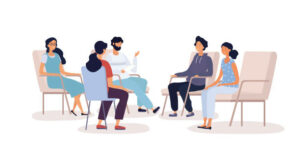 This is often a good idea when it comes to dealing with clinical depression. As it can offer you support from people who understand what you are going through. These groups also provide an opportunity to share your experiences and learn from others.
This is often a good idea when it comes to dealing with clinical depression. As it can offer you support from people who understand what you are going through. These groups also provide an opportunity to share your experiences and learn from others.
There are different types of support groups for clinical depression. Some of them focus on the condition itself. While others may be based on a particular treatment approach, such as CBT. You can also find support groups that are based on a particular interest or activity. Such as those for people who love to garden or play tennis.
So, these are some of the professional treatment options for clinical depression. If you or someone you know is dealing with this condition. It is important to seek help from a mental health professional. To get the best possible treatment.
How To Cope With Clinical Depression?
It is important to understand that clinical depression is a real medical condition that affects your mood, thoughts, body, and behavior. It is not just feeling blue for a few days or weeks. Clinical depression can cause serious problems in your life and make it hard to function.
Though medication and therapy are valuable treatments for clinical depression. Still, some people are believed to cope with this condition more effectively. Hence, there are things you can do on your own to help manage your symptoms.
Here are ten tips for you to cope with clinical depression:
Regular Exercise
Exercise is a great way to improve your mood and reduce stress. It releases endorphins, which have mood-boosting effects. A moderate amount of exercise is the key. You don’t have to go to the gym every day or run a marathon. Just 30 minutes of walking, biking, or swimming three to five times a week can help.
Eat Healthy Diet
it is often said that you are what you eat. So, if you want to feel better, eating healthy foods can help. Make sure to include:
- plenty of fruits,
- vegetables,
- whole grains, and
- lean protein in your diet.
Also, limit processed foods, sugary drinks, and red meat. These changes in your diet and nutrition can help improve your mood and give you more energy.
Get Enough Sleep
 Most people need around eight hours of sleep a day. But, some people with clinical depression may need more or less. Getting enough sleep can help reduce fatigue and improve concentration and mood. If you have trouble sleeping, talk to your doctor about ways to get better sleep.
Most people need around eight hours of sleep a day. But, some people with clinical depression may need more or less. Getting enough sleep can help reduce fatigue and improve concentration and mood. If you have trouble sleeping, talk to your doctor about ways to get better sleep.
Sleep is essential for good physical and mental health. When you’re depressed, you may have trouble falling asleep or staying asleep. This can make your symptoms worse. Aim for seven to eight hours of sleep a night. Eventually, you should feel rested when you wake up.
Talk to Someone Who Understands
When you’re dealing with clinical depression, it can be helpful to talk to someone who understands what you’re going through. This could be a friend, family member, therapist, or support group. Talking openly about your feelings and symptoms can help you feel better.
Connect With Others
Isolation can make depression worse. Spending time with friends and family, or getting involved in activities can help you feel better and reduce stress. If you don’t have many close friends or family, consider joining a club or group. There are also online communities that can provide support and understanding.
Find A Hobby
Doing things you enjoy can help take your mind off of your depression and give you a sense of accomplishment. Consider taking up a new hobby or activity, such as:
- painting,
- hiking,
- biking,
- gardening, or
- playing an instrument.
Activities are a great way to connect with others, learn new things, and reduce stress. Moreover, they can give you a sense of purpose.
Set Realistic Goals
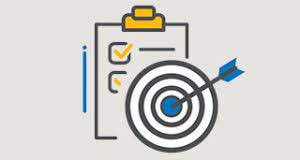 When you’re depressed, it can be hard to motivate yourself. Setting small, realistic goals can help you get moving and improve your mood. Try to:
When you’re depressed, it can be hard to motivate yourself. Setting small, realistic goals can help you get moving and improve your mood. Try to:
- take on one task at a time,
- break up large projects into smaller ones,
- set simple and achievable goals, and
- reward yourself for completing tasks.
Achieving your goals can help boost your self-esteem and give you a sense of accomplishment. In fact, it is one of the most important things you can do to manage clinical depression.
Practice Relaxation Techniques
Relaxation techniques are a great way to reduce stress and improve your mood. There are many different techniques you can try, such as:
- yoga,
- tai chi,
- meditation,
- deep breathing exercises, or
- progressive muscle relaxation.
You may want to find a class or book that can teach you how to do these techniques. Or, you can search online for instructions.
Manage Your Stress
Stress can make depression worse. Try to identify the things that are causing you stress and find ways to manage them. This could involve:
- changing your work schedule,
- asking for help from family and friends,
- avoiding stressful situations, or
- taking a break from your usual routine.
Reducing stress can help improve your mood and make it easier to manage your depression. These ways to manage your stress are important for your overall health and well-being.
Be Patient With Yourself
 It is really important to be patient with yourself when you’re dealing with clinical depression. Depression can take time to treat, so don’t expect to see results overnight. Also, do not get discouraged if your symptoms return or worsen at times. This is normal and part of the process. Just keep working towards your goals and remember that things will get better.
It is really important to be patient with yourself when you’re dealing with clinical depression. Depression can take time to treat, so don’t expect to see results overnight. Also, do not get discouraged if your symptoms return or worsen at times. This is normal and part of the process. Just keep working towards your goals and remember that things will get better.
So, these are some things you need to know about clinical depression. If you or someone you know is dealing with this, please remember that help is available. There are many resources and treatments that can make a big difference. Do not hesitate to reach out for help if you need it. Also, you must try these tips even with your professional treatment. And, you will feel better. Just keep going and never give up!
Conclusion
To conclude, clinical depression is a serious mental illness that should not be taken lightly. In fact, it “is characterized by persistent sadness and a loss of interest in activities.” Also, individuals who suffer from clinical depression “experience a range of symptoms.”
The symptoms of this condition can be really distressing. So it is important to understand the condition and get proper help. Furthermore, people should also be aware of the fact that clinical depression is not just feeling blue. It is a real mental illness with real consequences.
For more information, please contact MantraCare. Depression is a mental illness characterized by persistent feelings of sadness, hopelessness, and loss of interest in daily activities. If you have any queries regarding Online Depression Counseling experienced therapists at MantraCare can help: Book a trial Depression Therapy session
